Teething is the process where a tooth comes out through baby’s gums. The process of getting the first row of tiny teeth may or may not be a frustrating for babies and also for parents. Teething stands as an important milestone in child development. Another word of teething is odontiasis.
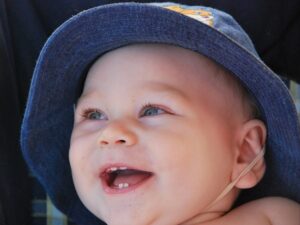
When do babies start teething?
Most of the baby’s first tooth can appear between 4 and 7 months old, but some may start teething later. There is no reason to worry on the late eruption of teeth. It can be different for every baby. It may be based on your family history.
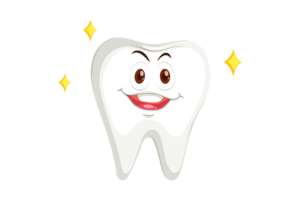
Signs & symptoms of teething
Babies do acquire teeth and can increasingly bite, chew & tastes various textured food which builds the underlying oral-motor musculature for speech development. But teething isn’t much fun for you and your baby. There exist some of the symptoms for teething. They aren’t same for every baby. Our cute little munchkins may or may not experience some of the symptoms like swollen or tender gums, fuzziness & crying, might have slightly raised temperature, gnawing or wanting to chew or bite hard things, lots of drool, coughing, rubbing their cheek or pulling their ears, changes in their eating & sleeping patterns which indirectly affects the weight gain. Teething can be painful but it doesn’t make babies sick. The other symptoms like diarrhea, vomiting, rashes on the skin, high fever & cough, congestion, bleeding gums and any pus or swelling on their face aren’t normal signs of teething. Seek help from your paediatrician.
Order of teeth eruption

Teething is different for every baby and it may be based on the family history but there is general teeth eruption chart. The lower front two teeth comes first, followed by upper two teeth. Next comes two teeth on either side of upper & bottom front teeth. Then the first molar appears by next to the front teeth and the back molars are the last one to come in. All 20 “baby teeth” will eventually be in place by age 3.
How to soothe a teething baby?
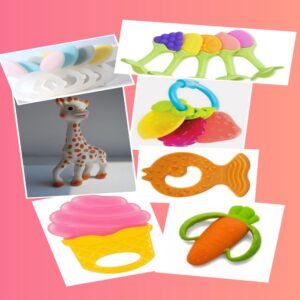
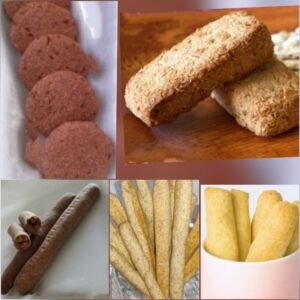
The soothing techniques that work for your friend’s baby might not work for you. You may need to try different way to make your baby feel soothe and better during teething. The following are various soothing ways which you can try one by one.
- You can try offering your baby with a cold pacifier, spoon, clean wet washcloth or a solid refrigerated teething toy or teething ring. Some experts state that if the frozen teething toys are too cold, it may hurt your baby’s mouth. So, consider using moderate cold teething toys. Ensure that all the teething toys, wash clothes are well cleaned after each use.
- Try offering your baby a hard, unsweetened teething crackers like teething sticks, biscuits or cookies that are made with ragi, banana, sesame seeds, jaggery, wheat or any other healthy flavours.
- Massage the gums gently by rubbing them with your clean finger and let your baby gnaw on your finger sometimes. You can dip your finger in cool water and massage your baby’s gums. It helps them to feel better and also if massaged before every breast feeding, may keep them from biting your nipple while nursing.
- If your baby is more than 6-9 months, make them sip a little of cold water.
Things to avoid during teething
Never ever offer your baby any teething aids that are not approved to help soothing your babies while teething. Even some of the products mentioned as teethers that includes teethers filled with liquid which can break or tear, spill and goes into baby’s mouth, teethers made with material like plastic which is breakable and can possibly lead to chocking, materials made from harmful substance like lead, frozen solid that are too hard on baby’s mouth should be avoided.
Child health experts do not recommend teething necklaces as they’re dangerous (they can strangle the baby, leads to chocking). If you wish to wear the teething necklace, try wearing it on wrist or ankle, not around the neck. Always have an eye on your baby when they wear it.
Medicines that are rubbed on your baby’s gums may not help soothing them. It may quickly washes away in their mouth and their throat becomes numb and it would make it hard to swallow. Always, ask your doctor before giving any medication to your baby for soothing them from teething.
How to take care of baby’s teeth?
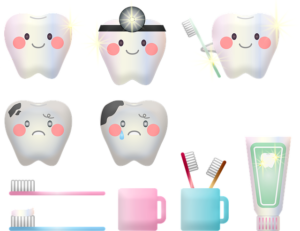
Good oral hygiene is very important for kids at all ages, even before your baby has teeth clean your baby’s gums with wet wash cloth or with your clean finger atleast once or twice a day.
Once they have teeth, clean your baby’s mouth twice a day and it is a good time after every feeding.
After one year, you can start to use a soft-bristled baby toothbrush with water and a small amount of toothpaste that doesn’t contain fluoride.
The Takeaway
Teething can be tough for you and your baby at first. But it will get easier as you both learn to soothe for each new tooth that pops out. Screening your baby’s teeth until the age of 3 can be done with your paediatrician and to a dentist, if the referral is made. Being a mom, it is good to know & learn on the stages of baby teeth and their growing and thus can make your baby soothing and happy while teething.


Pingback: Milestones - Infants (Newborn to 12 Months) - MOMKNOWZ
Right on my man!
Sure
Why is it I always really feel like you do?
I was just telling my friend about that.
I didn’t know that.
Superb post but I was wanting to know if you could write a litte more on this subject?
I’d be very grateful if you could elaborate a little bit more.
Many thanks!
Will do for sure. Thank you.
Your mode off describig everything inn ths artile is genuinely pleasant,
all bee able tto simply understand it, Thanks
a lot.
Thank you so much.